The digital marketing world is evolving faster than ever before, and businesses are under pressure to keep up. In 2025, the competitive edge no longer lies in manual campaigns but in adopting the right technology to scale efficiently. This is where marketing automation platforms 2025 play a critical role. These platforms help brands personalize experiences, nurture leads, and analyze campaign results in real time—all while reducing workload for marketing teams.
In this guide, we’ll explore why marketing automation is more important than ever, which features to look for, and the leading platforms that can reshape your digital marketing strategy.
Why Marketing Automation Is Essential in 2025
Consumers today expect personalized experiences across every channel. They want tailored recommendations, timely follow-ups, and seamless interactions, whether on social media, email, or websites. Businesses can’t manually manage this complexity without advanced technology. That’s why marketing automation platforms 2025 are more than just tools—they are growth engines that connect all marketing touchpoints into a single system.
These platforms not only help generate leads but also nurture them into loyal customers. By using automation, marketers can deliver the right message to the right person at the right time, which directly increases ROI and customer satisfaction.
Key Features of Modern Marketing Automation Platforms
When choosing from the many marketing automation platforms 2025, businesses should focus on the following features:
- AI-Powered Personalization – Predictive analytics and machine learning ensure more relevant communication.
- Omnichannel Integration – Platforms must connect email, social media, SMS, and ads for a unified customer journey.
- Advanced Analytics – Real-time dashboards help measure campaign effectiveness and optimize performance.
- Scalability – Businesses need tools that grow with them, from startups to global enterprises.
- Customer Journey Mapping – Visual tools that allow marketers to track and optimize each step of the funnel.
These features are shaping how businesses connect with customers and drive conversions.
Top Marketing Automation Platforms 2025
1. HubSpot Marketing Hub
HubSpot continues to be a leader thanks to its user-friendly interface and robust all-in-one ecosystem. In 2025, HubSpot has expanded its AI capabilities to improve customer segmentation and campaign automation. It is especially beneficial for small to mid-sized businesses looking for a comprehensive solution.
2. Salesforce Marketing Cloud
Salesforce has been a powerhouse in customer relationship management, and its marketing platform integrates seamlessly with its CRM. The 2025 version introduces enhanced AI-driven journey orchestration and deeper integration with third-party apps, making it ideal for enterprises seeking full control.
3. Marketo Engage by Adobe
Marketo remains one of the strongest choices for B2B marketing automation. In 2025, Adobe’s updates focus on predictive lead scoring and personalization at scale. Marketo is particularly effective for businesses that want to align marketing and sales efforts closely.
4. ActiveCampaign
This platform has grown rapidly due to its balance between affordability and power. By 2025, ActiveCampaign offers advanced machine learning features, making it easy for small businesses to compete with larger players. Its email marketing automation remains one of the strongest in the industry.
5. Klaviyo
Klaviyo has gained popularity with eCommerce businesses. In 2025, the platform emphasizes predictive analytics to drive repeat purchases and customer loyalty. Its seamless integrations with Shopify, WooCommerce, and other eCommerce platforms make it a go-to choice for online retailers.
6. Mailchimp
Mailchimp has evolved from an email marketing tool into a full-scale automation platform. The 2025 update introduces AI-driven content recommendations, improved segmentation, and enhanced reporting. It’s a great entry point for businesses starting their automation journey.
Benefits of Using Marketing Automation in 2025
Adopting marketing automation platforms 2025 gives companies a strategic advantage. Some of the key benefits include:
- Time Savings – Repetitive tasks like sending emails or posting on social media are fully automated.
- Better Lead Nurturing – Automation ensures prospects receive consistent and personalized communication.
- Data-Driven Insights – Advanced analytics help marketers make smarter decisions.
- Improved ROI – Automation maximizes campaign efficiency while reducing wasted effort.
- Stronger Customer Relationships – Personalization fosters trust and long-term loyalty.
These benefits explain why businesses across industries—from startups to large enterprises—are investing heavily in automation technology.
Future Trends in Marketing Automation
Looking beyond 2025, automation will continue to evolve with innovations such as:
- Hyper-Personalization powered by AI and real-time customer data.
- Voice Search Optimization integrated into campaigns for smart devices.
- Chatbot-Driven Engagement delivering faster customer support.
- Predictive Marketing that anticipates customer needs before they arise.
These trends indicate that marketing automation platforms 2025 are just the beginning of a much bigger transformation in digital marketing.
Choosing the Right Platform for Your Business
The best platform depends on your company size, goals, and industry. Small businesses might prioritize affordability and ease of use, while enterprises focus on scalability and advanced analytics. Before deciding, businesses should evaluate trial versions, assess integrations, and ensure the platform aligns with their customer journey needs.
Final Thoughts
In 2025, marketing automation is no longer optional—it’s essential for growth. With consumers demanding seamless, personalized experiences, businesses must invest in platforms that simplify complex processes while maximizing results. The top marketing automation platforms 2025 are designed to streamline workflows, increase conversions, and help brands stay ahead of the competition.
By selecting the right platform and adopting best practices, marketers can build campaigns that not only attract attention but also nurture lasting customer relationships. Ultimately, automation empowers businesses to focus on strategy and creativity while technology handles execution.


